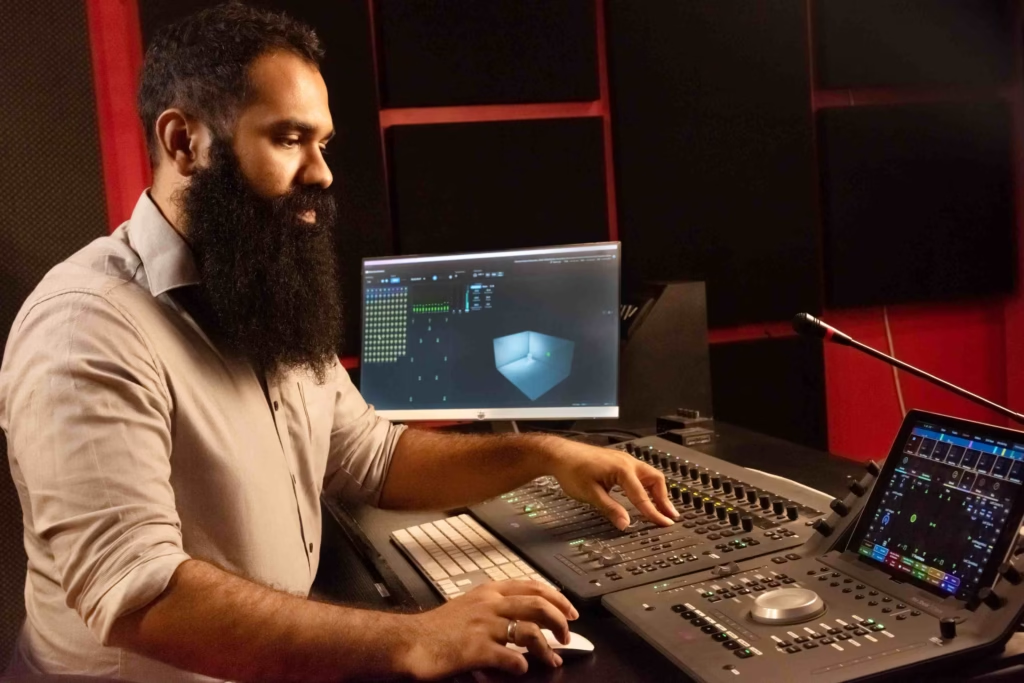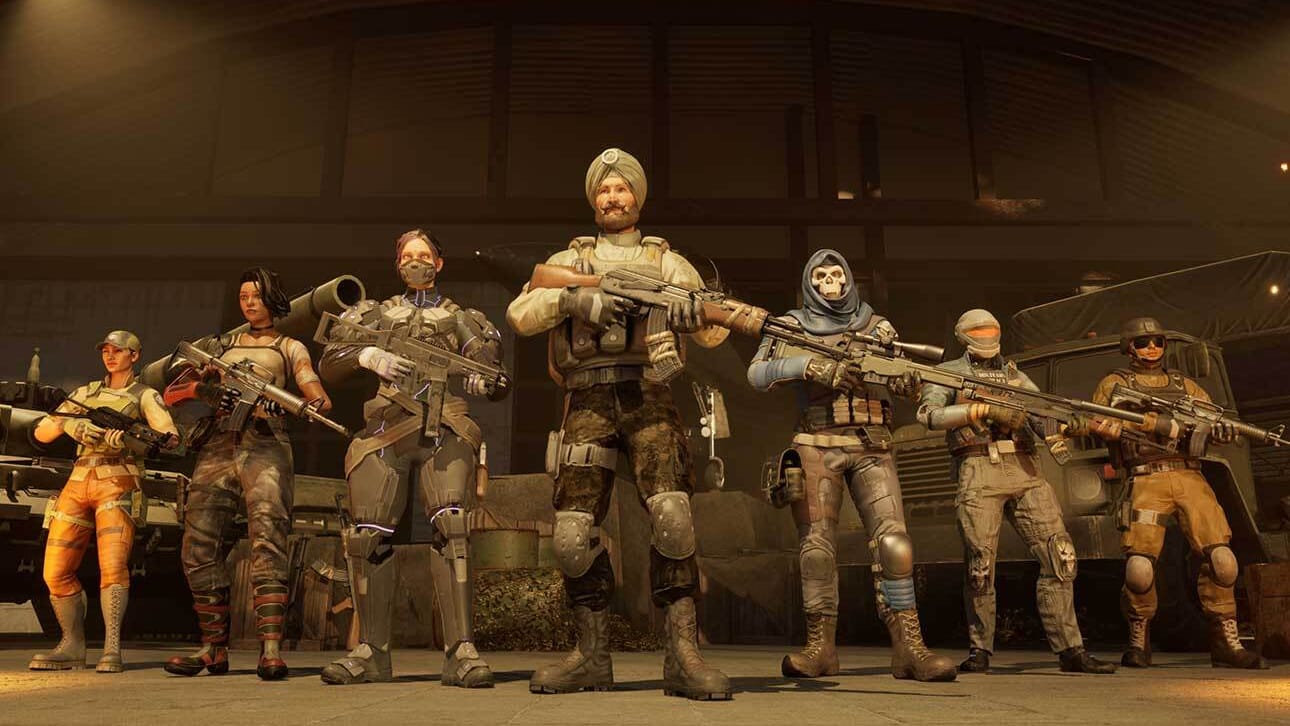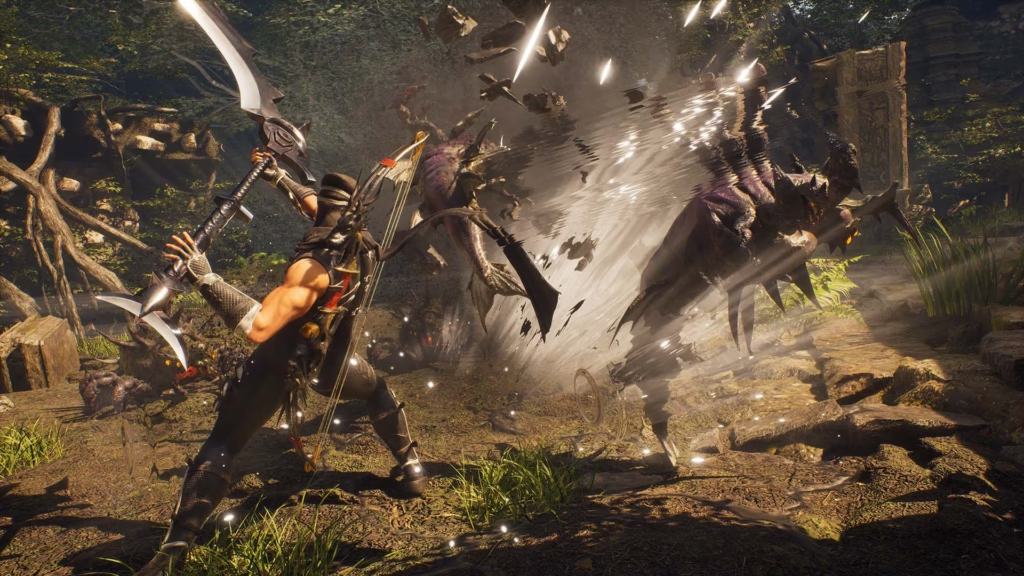Welcome to the fifth edition of Drop C++, a series about the people who put the music into your favourite (and not-so-favoured) games. Over the course of discussions with a variety of musicians, composers and sound designers, this set of articles will seek to shed some light on how the music comes together, the people who make it, what inspires them and more. And with that out of the way, stand back! Volume 5 of the series is coming through.

In its original form, 2021’s Fearless and United Guards (FAU-G) by nCORE Games was an unmitigated disaster. Limited content, repetitive gameplay and a lack of polish are things most players can probably deal with or come to terms with. However, the onslaught of jingoism in the messaging, coupled with the fact that the game was announced in the wake of the national ban on PUBG (whether or not the two were related is immaterial) left a very poor taste in people’s mouths.
Flash-forward to 2025 and FAU-G: Domination, nCORE’s second bite of the cherry (but this time, with Dot9 Games in tow) is set for imminent launch and looks, sounds and plays like a brand new and extremely competent experience. “I was told that it was a multiplayer, mobile game that’s somewhat similar to Call of Duty and that they wanted the music and sound effects to surpass other games in that space,” says sound engineer, producer, mixer and musician Sushant Kulkarni about the start of his involvement with FAU-G: Domination.
In the trenches
“When envisioning the music, we were focused on a marching beat,” he recalls, “So what we tried was to take that marching tempo and create something that was musically quite heavy.” Over time, this approach led them to a new situation: Introducing Indian elements to what was hitherto a fairly western arrangement.
“It had to be a little unique because we were trying to showcase India to the world, and so we’d need to introduce Indian elements,” Sushant says, “The next step was to bring in Indian instruments to enhance the melody side of things. For instance, we tried to use a sitar instead of a guitar as the lead instrument.” Sure, they’re both stringed instruments, but when it comes to conjuring a mood, they’re worlds apart.
“A sitar is not an aggressive instrument at all. Certainly, there is a great deal of emotional depth that the sitar has, but it lacks the aggression of a distorted guitar. So the challenge was to bring that level of aggression to an instrument like the sitar,” he reflects on one of the many experiments upon which he embarked during his time with the game. After all, you can’t have a military-themed battle royale game without aggressive music. And while putting together the music was like being in a chemistry lab, the experience of sound design was much more akin to working in a forensics lab.

“After doing multiple games, what I’ve realised is that with sound design, it’s impossible to see the whole picture right away,” philosophises Sushant, “We look at one SFX at a time and then gradually put everything together like a jigsaw puzzle and then take a step back to see what it all looks like.” With film and television, there are multiple layers of sound that coalesce, but with games, there are individual bits of SFX that are more or less pronounced depending on the in-game context. “So we had to focus on those individual bits like the sounds of gunfire, ricochet and so on, rather than the full picture,” he elaborates.
Back at base camp
While currently rocking out to Dead Letter Circus’ eponymous 2018 album, Sushant identifies Mick Gordon (best known as the music composer for Doom) as his biggest musical influence. “This isn’t only because I also come from a background where I’m a musician and I play guitar,” he laughs, “But I remember it was in GDC 2017 when he gave a talk about his process, and I found his vision and ideas really inspiring.”
But before he’d heard so much as a single power chord played by the Australian maestro, a lion’s share of Sushant’s musical education was imparted by his elder sister. “She used to listen to everything, ranging from the blues to rock and all the way to stuff like Boyzone,” he reminisces, “I still have some of the Linkin Park and Metallica cassettes from back in the day. And this entire bouquet of music inspired me to try my hand at it.” One thing led to another, and he went on to join a band called What Google Can’t Find, with whom he’d tour India a couple of times.
“My primary instrument is the guitar. So even if I am doing something with any other instrument, the guitar will always be my starting point as I do the melody first and then go for the beat,” he explains, “Now, if it’s a game, the tempo comes first, and so I like to watch a bit of gameplay footage so as to understand the tempo at which the music needs to be composed.” Sushant cites the example of Doom as a game where the progression from one game state to another (and indeed, one level to another) is so quick that tempo is extremely critical.
His realisation that he wanted to get into audio design (apart from music) would take him to London, where he’d earn a Diploma in Studio Sound Engineering and Production from Alchemea College of Audio Engineering. “After that, I got a chance to work at Abbey Road Studios, and apart from getting to ply his trade at such venues as the Royal Albert Hall and Hammersmith Apollo, just being in that ecosystem was extremely inspiring,” gushes Sushant, “After a GDC, I ran into someone from Skywalker Ranch, and even got to visit the place!”
This journey has seen him involved with a whole host of projects that include music albums, podcasts, commercials, films and of course, videogames. With a decade-plus in the sound industry, Sushant co-founded 24 Track Legends — a boutique that specialises in ‘crafting immersive audio experiences for films, games, and music’. And there’s a tonne more projects in the pipeline.
With that in mind, we’ll be keeping a keen ear out for his pulse-racing contributions on FAU-G: Domination as well as his other projects when they’re announced.


